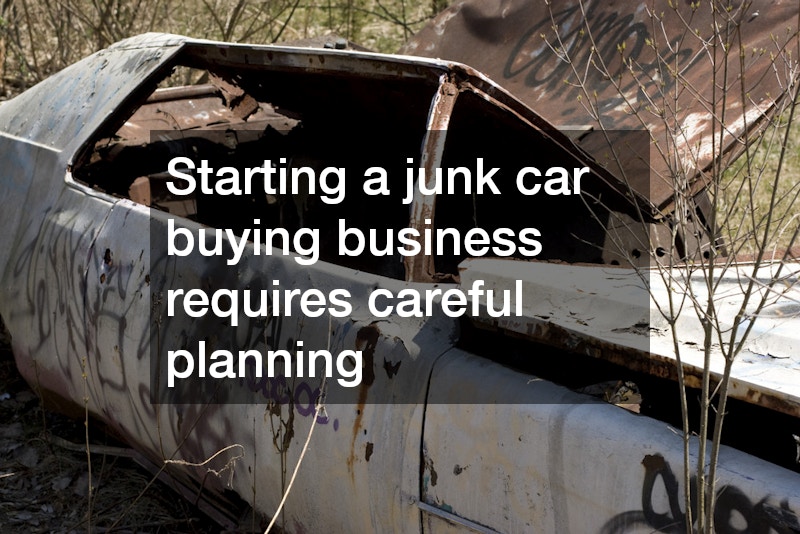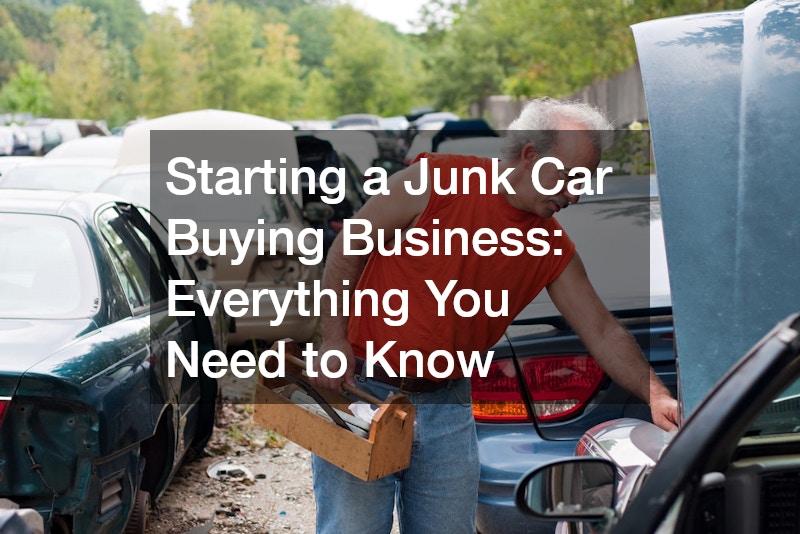Starting a junk cars for cash business can be a lucrative and sustainable venture. This article will guide you through the essentials of getting started, the challenges you may face, and tips to ensure success in this robust industry. Entering the junk car industry means tapping into a market that values not only the recycled metal from old vehicles but also the parts themselves, which can be quite profitable.
What are the Basic Requirements to Start a Junk Car Buying Business?
To begin a junk car buying business, it’s essential to understand the array of licenses and permits required to operate legally. Typically, you’ll need a business license and a special permit for handling vehicles, which vary depending on your location due to differing zoning laws. Environmentally, you’ll need to manage various hazardous materials appropriately, ensuring you adhere to local environmental regulations to avoid heavy fines.
Initial investments are another crucial consideration, as they typically include securing a suitable property for your operations, which must be compliant with zoning regulations for automotive recycling. Equipment costs, such as tow trucks and tools for dismantling vehicles, should also be factored into your preliminary budget. Beyond operational costs, marketing and networking tools are vital to launching your business and attracting sellers.
Moreover, financially successful junk car buying businesses often rely on well-placed investments in technology that support better assessment and processing of junk cars, which enhances profitability. This involves spending on software that can provide real-time market analysis and pricing guides. Innovative vehicle processing methods also consider environmental impacts and compliance, which are critical as more consumers and businesses look to environmentally friendly practices.
How to Evaluate and Price Junk Cars Effectively?
Evaluating junk cars requires a keen eye for detail and a strategic approach to valuation, which involves assessing the condition of the vehicle and identifying sellable parts. Effective evaluation begins with understanding the car model’s popularity and the value of its individual components, which can generate significant revenue despite the overall condition of the vehicle. The fluctuation in scrap metal prices may also affect your valuation, necessitating an ongoing awareness of market trends.
Using technology, such as specialized software, can streamline the assessment process by providing detailed insights into the current market value of vehicles and parts, allowing for more accurate pricing. This technology integrates various factors, including metal prices, market demand for certain parts, and historical data, to produce competitive offers that attract sellers. Developing relationships with scrap yards and parts distributors can augment the pricing process by giving insights into the most sought-after components.
The key to successful junk car valuation lies in balancing the intrinsic value of parts and the current auxiliary market for recycled metals. The method involves weighing the costs associated with acquiring and processing the vehicle against potential revenue from parts and metal sales. This nuanced approach underscores the importance of continuous market research and developing a robust pricing strategy that supports sustainable business growth.
What are the Best Strategies for Marketing and Growing Your Business?
In the junk car buying industry, effective advertising strategies are vital to stand out in a competitive market, beginning with leveraging digital marketing and SEO to reach a broader audience. Establishing a strong online presence is crucial, using compelling website content and engaging social media campaigns to attract potential customers and sellers. Particularly, local SEO can drive targeted traffic to your business by ensuring visibility for searches in your area.
Networking, both locally and within industry circles, is another cornerstone of growing a junk car business. Attending automotive and recycling industry events offers opportunities to forge partnerships with key players, such as tow truck operators, scrap yards, and parts vendors. These partnerships can enhance lead generation and increase operational efficiency, while connecting with other professionals can provide insights into best practices and emerging industry trends.
As your business becomes more established, expansion may involve broadening services or entering new markets, which requires strategic planning and market analysis. This stage often involves diversifying your offerings, such as selling recycled car parts and investing in better processing technologies to enhance business capabilities. Expansion efforts should align with current market conditions, consumer trends, and economic forecasts to mitigate risks and capitalize on growth opportunities.
Starting a junk car buying business requires careful planning, from understanding regulatory requirements to implementing effective marketing strategies. By following the guidelines in this article, you can create a successful and thriving business. As you navigate this market, continuous adaptation to industry changes and commitment to environmentally responsible practices will be integral to your long-term success.
.






